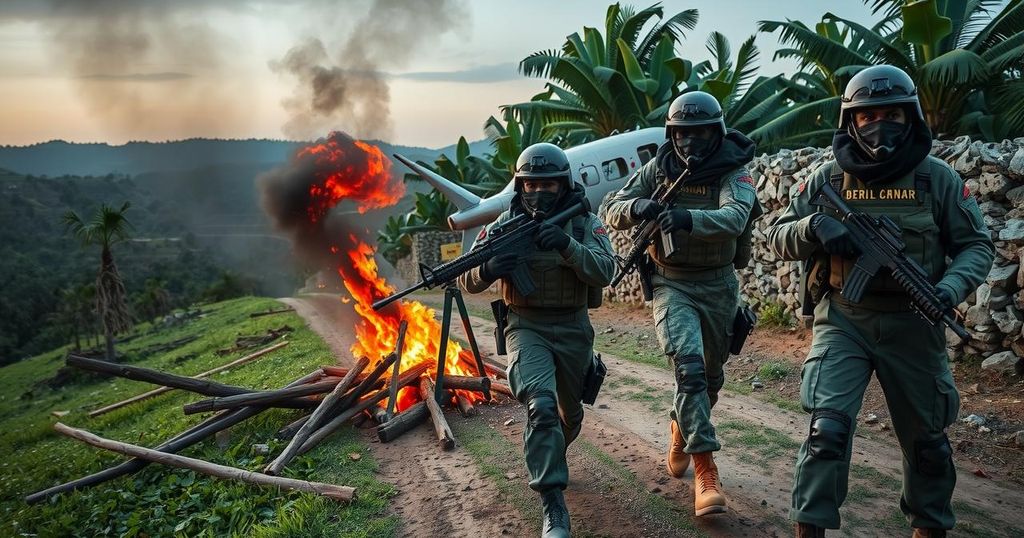Humanitarian Crisis in North Kivu: The Consequences of Ongoing Conflict

In December 2024, North Kivu faced intensified fighting, displacing over 290,000 individuals and totaling 2.7 million displaced people. The M23 and ADF rebel groups have greatly contributed to this humanitarian crisis through ongoing violence. Military backing from Rwanda enables M23’s aggressive territorial ambitions, while Masisi remains a pivotal battleground amidst failed peace talks. The situation necessitates urgent international intervention.
In December 2024, heavy conflict persisted in North Kivu’s Lubero region, resulting in the displacement of over 290,000 individuals, according to the United Nations Office for the Coordination of Humanitarian Affairs (OCHA). This surge added to a staggering total of 2.7 million displaced persons within North Kivu. Continued clashes with the M23 rebel group and the Allied Democratic Forces (ADF) have severely aggravated the humanitarian crisis, with civilians bearing the brunt of the violence.
The ADF, a Ugandan insurgency notorious for its terrorism against local populations in North Kivu, announced its alignment with the Islamic State in 2019, intensifying its threat. Meanwhile, the M23 group has received substantial military support from Rwanda, including advanced weaponry, as documented in a recent UN report. This backing has aided the M23’s territorial ambitions in Eastern Congo, particularly following the collapse of peace negotiations in December.
The situation is especially dire in Masisi, a strategic city that has seen control oscillate between M23 forces and the Congolese army, which is bolstered by local militias. Although there are efforts to stabilize the city, the surrounding hills remain under the control of the M23, posing ongoing risks of renewed attacks. With Goma, the provincial capital, also under threat, the humanitarian landscape in North Kivu continues to deteriorate, necessitating urgent international attention and intervention.
The ongoing conflict in the Democratic Republic of Congo, particularly in North Kivu, is a complex situation exacerbated by the presence of various armed groups. The region faces a humanitarian disaster marked by high levels of displacement due to incessant fighting between governmental forces and rebel factions, including the M23 and ADF. The support these groups receive from foreign entities, particularly Rwanda, further complicates efforts at achieving lasting peace. The situation has led to dire needs among displaced populations, including access to basic services like education, healthcare, and nutrition.
The conflict in North Kivu exemplifies the devastating impact of armed violence on civilian life. With over 2.7 million people displaced, the humanitarian crisis demands immediate international response to alleviate suffering and restore stability. The continued support of rebel factions by neighboring countries, coupled with the failure of peace negotiations, indicates that without determined intervention, the cycle of violence is likely to continue, further endangering the lives of countless innocent individuals.
Original Source: www.fides.org








